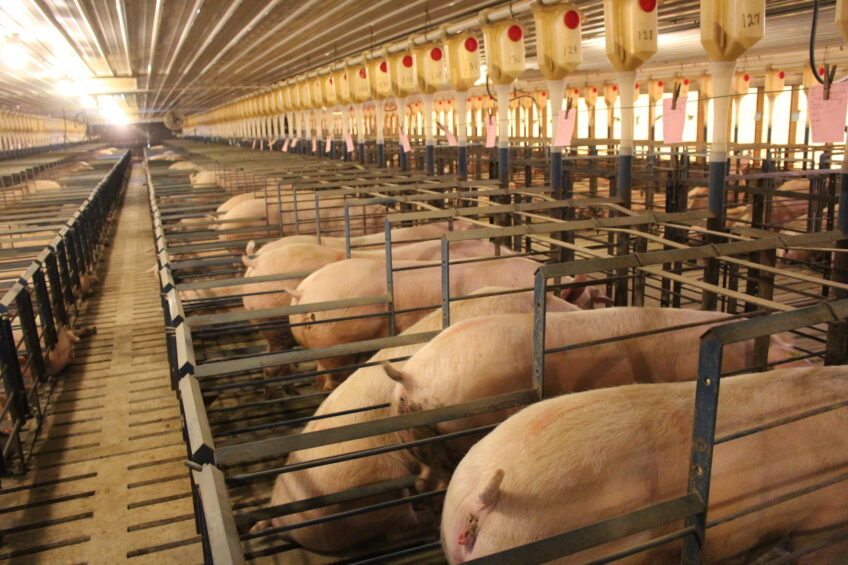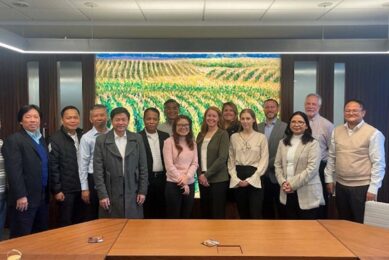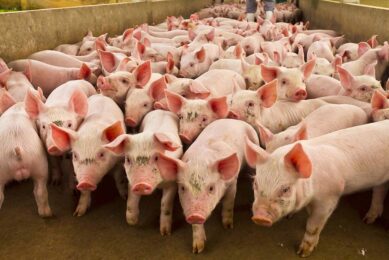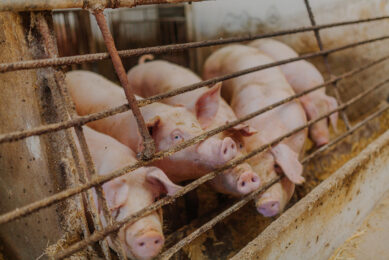US Supreme Court upholds Proposition 12

The US Supreme Court upheld the legality of the controversial Proposition 12, an animal welfare law passed in California in 2018. The US pork industry has strongly opposed Prop 12 for years.
“We are very disappointed with the Supreme Court’s opinion,” stated Scott Hays, president of the National Pork Producers Council in a news release. “Allowing state overreach will increase prices for consumers and drive small farms out of business, leading to more consolidation. We are still evaluating the court’s full opinion to understand all the implications. NPPC will continue to fight for our nation’s pork farmers and American families against misguided regulations.”
Inside Proposition 12
This legislation, fully implemented in January 2022, outlines standards for confinement systems for sows, poultry and veal calves in California. Each breeding sow must have 2.23 m2 (24 ft2) of space and gestation crates are not permissible.
However, Prop 12 also prohibits any business from selling into California any pork meat, veal meat and eggs derived from animals housed in a manner that violates Prop 12 standards.
Massachusetts has a law similar to Prop 12 that includes in-state sales of pork produced in other states, but enforcement was on hold until the Supreme Court ruled.
Court briefs
In October 2022, the US Supreme Court heard arguments from the NPPC and other parties in favour of the court finding Prop 12 illegal. The arguments focused on the commerce clause of the US Constitution.
That is, NPPC, in collaboration with the American Farm Bureau Federation, filed a brief arguing that Prop 12 violates the Clause, which restricts states from regulating commerce outside their borders. The US government was in agreement with the NPPC and other groups. The US solicitor general also filed a request with the Supreme Court to strike down Prop 12.
In October, Canadian pork producers made a ‘friend of the court’ submission against the legality of Prop 12, in collaboration with other parties including Mexican pork producers.
The only pork company to submit an Amicus Brief to the Supreme Court in support of Prop 12, Niman Ranch was pleased with the decision. Niman Ranch is “a network of independent family farmers and ranchers raising pork, beef and lamb humanely and sustainably, with no antibiotics or added hormones.” and the largest farmer and rancher network in North America to be ‘Certified Humane.’ Its pork operations have always been 100% crate-free and keeps pigs “outdoors or in deeply-bedded pens, with no tail docking, teeth clipping or other standard industry practices.”
Pork companies complying with Prop 12
2 of the largest US pork companies, Tyson Foods and Hormel had already agreed to comply with Prop 12 about 2 years ago. Major Canadian integrated pork producer Maple Leaf Foods has already transitioned all its own production to open housing for gestating sows. Another major Canadian pork producer, Quebec-based duBreton, produces a line of ‘humane-certified’ pork sourced from Canadian farms and complies with Prop 12.
Future challenge?
The decision of the US Supreme Court to uphold Prop 12 was close: 5-4. However, one of the dissenting judges, chief justice Kavanaugh, noted that parties could challenge the court’s decision.
He stated in his opinion which accompanies the court’s decision, that “although the court today rejects the plaintiffs’ dormant commerce clause challenge as insufficiently pled, state laws like Proposition 12 implicate not only the commerce clause, but also potentially several other constitutional provisions, including the import-export clause, the privileges and immunities clause, and the full faith and credit clause.”
“In other words, if one state conditions sale of a good on the use of preferred farming, manufacturing, or production practices in another State where the good was grown or made, serious questions may arise under the Import-Export Clause. I do not take a position here on whether such an argument ultimately would prevail. I note only that the question warrants additional consideration in a future case.”
 Beheer
Beheer








 WP Admin
WP Admin  Bewerk bericht
Bewerk bericht